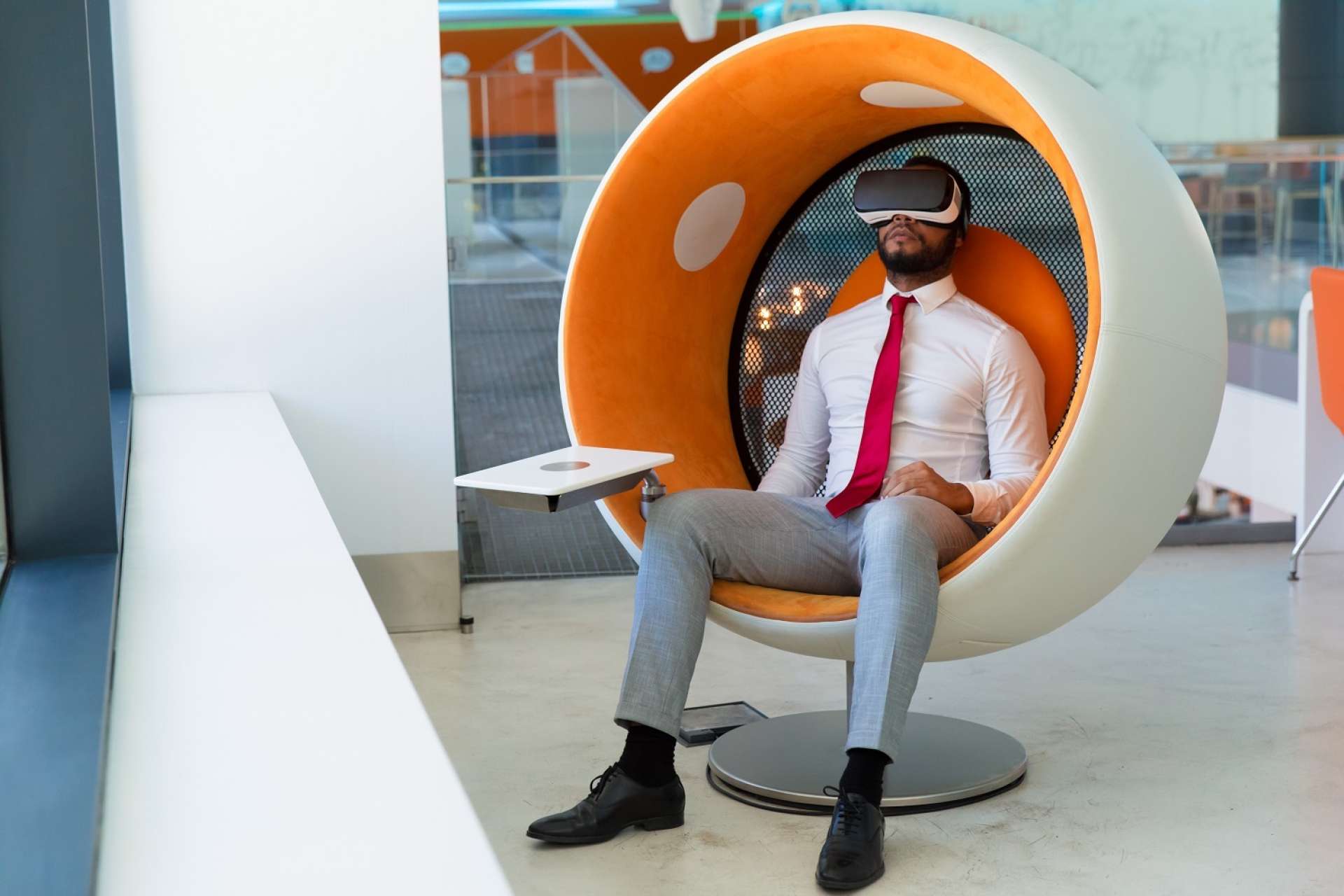There is no question that technology will play an increasingly important role at work. Digitisation is therefore at the top of the list when redesigning the workplace. The market already offers countless opportunities to pave the way to flexible working for employees. There are a lot of benefits of working remotely. In the future, the most successful companies will have collaboration platforms that will allow employees to communicate from any device, from anywhere and at any time. Who cares where you do your job, provided that your work is good and finished on time, right?
The ten workplace trends that foresee the future
1. Augmented reality workstations
Facebook already has it: a mixed reality workspace allowing people to work better from home. Futuristic settings, in which you bring the office into your home (as it were), with floating virtual displays. Switch from the real world to a digital world with the click of a mouse. All of your colleagues will suddenly join you in your living room for a meeting.
2. The 6-feet-distance office
If COVID-19 is provisionally here to stay (albeit it in a weakened form because, just like with the flu, we will hopefully become more resistant to it), then offices may have to be set up as standard to allow social distancing of 6 feet. Complete with cough screens and disinfection columns. Not the most welcoming, but who knows?
3. Clean desk policy
This already exists of course, but there is even more of a focus on this because of the virus that is flitting around. We have read about a company in Japan where employees place a clean (disposable) placemat on their desk every day.
4. Back to the cubicles approach
Remember those cube farms, comprising a mini desk partitioned off behind three airproof screens every square metre? That idea wasn’t abandoned for no reason, but according to some trend forecasters, needs must. We will probably not return fully to the cubicles approach, but open-plan offices are also no longer realistic. Also see point 2.
5. Signage
Like at airports, but at work. Think of signposts, lines on the floor, floor markings in lifts to show where someone must stand, or large circles around desks to ensure distancing. The options also include walking clockwise and one-way traffic.
6. Smart technology
Automatic doors, facial recognition, operating lifts, ordering coffee with your smartphone, artificial intelligence (AI), virtual reality (VR) and augmented reality (AR): all smart, new technologies that will have an impact on the workplace and the way in which we work (together).
7. Fresh air
We have already mentioned the benefit of fresh air, but corona has made this a necessity. If windows cannot be opened, high-end office climate control systems may provide a solution.
8. Co(rona)-working
Sometimes a trend simply doesn’t stand a chance. This may also apply to the aforementioned trend of co-working spaces. Until now, this has provided a solution to the problem of expensive office space, versus flexible occupancy and, therefore, the flexible space boom. But that can easily be undermined if corona becomes a long-term issue.
9. Greetings
For the time-being, no hands are being shaken, perhaps never again. Never mind the air kisses (two or three, it no longer matters). In the future, how will we greet one another professionally? A fist or elbow bump is rather ‘chummy’. Perhaps with hands held in a prayer-like post, like the Japanese do? Or simply a hand in the air forming a semi-circle?
10. Workplace becomes a meeting place
The increasing flexibility at work will result in the role of the office shifting to a meeting place for colleagues, where they exchange experiences and learn from one another. Technology optimally facilitates those meetings and ensures that everyone, regardless of their position and location, can get the most out of themselves and their collaboration with others.
Is your organization future-proof?
Do you want to know everything about the workplace of the future? About digitisation and the countless possibilities for flexible working? Then download the whitepaper below. In no time you will know how to make your organisation future-proof.
